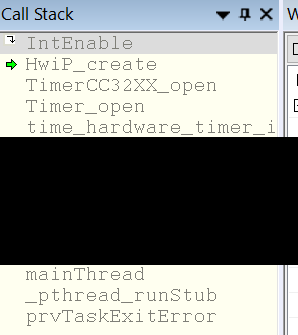Other Parts Discussed in Thread: CC3220SF, UNIFLASH
Hi,
I'm using hardware timers on the TICC3220 but every time I try to call the Timer_open() function it leads to an ISR fault, here is the initialization of my timer :
void time_hardware_timer_initialize(void)
{
Timer_Params_init(¶ms);
params.periodUnits = Timer_PERIOD_HZ;
params.period = TC_CLOCK;
params.timerMode = Timer_CONTINUOUS_CALLBACK;
params.timerCallback = timerCallback;
timer0 = Timer_open(Board_TIMER0, ¶ms);
if (timer0 == NULL) {
/* Failed to initialized timer */
while (1);
}
if (Timer_start(timer0) == Timer_STATUS_ERROR) {
/* Failed to start timer */
while (1);
}
}
As stated in the documentation, before making any call to the timer API, I do a Timer_init() (which is in my main).
I also got this problem when running the example application "timerled".
Is there something missing in my initialization code ?
Regards


